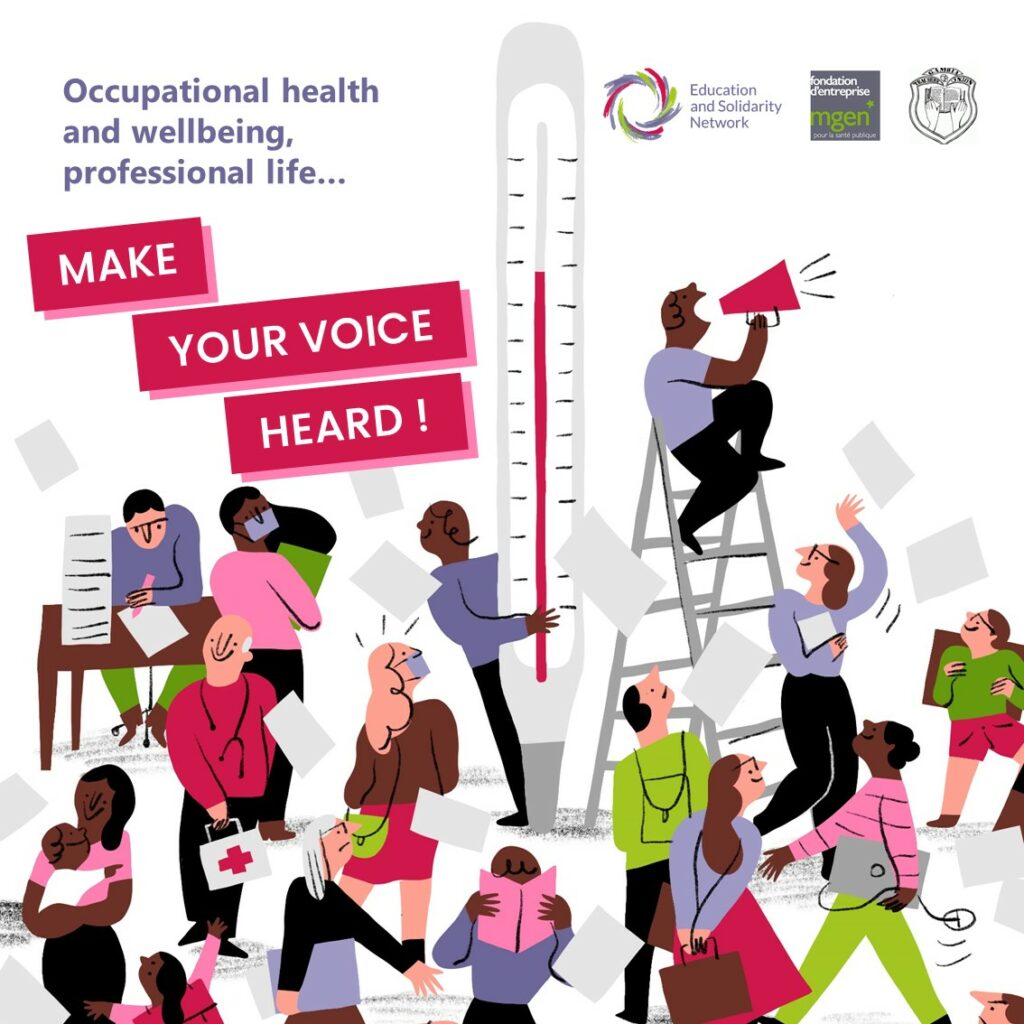In 2021, the Education and Solidarity Network and MGEN Corporate Public Health Foundation launched the 1st edition of the International Barometer of the health and wellbeing of education workers in France, Belgium, Morocco, Gambia, Quebec and Mexico. The responses to the questionnaires, which were distributed between May and June in these 6 countries, will be analysed over the summer and the results will be published in autumn 2021.
For several years, and in many countries around the world, the deterioration of the quality of working life has contributed to the disaffection for the profession, leading to high turnover and even teacher shortages. A crucial issue for ESN members, mutual health organisations and education unions.
Luc Beauregard, of Centrale des Syndicats du Québec (CSQ), and member of the Barometer working group, stated: “For the past three years, the CSQ has done a lot of work on the psychological health of its members. We are working hard to get our members in education and health to recognise that it’s not because of them that they have [mental health] problems, but because of the working conditions they experience. And the International Health & Wellbeing Barometer provides an overall view of the situation.”
“The health crisis reinforced the idea that we absolutely had to work on this issue, which is international,” adds Christian Chevalier, a member of the Barometer working group (UNSA-Education – France).
The objectives of the barometer are to provide an overview of the health and wellbeing of education workers, to identify common trends or differences between countries and, in time, when several editions are available, to monitor changes in the indicators over time. What is the goal? To foster advocacy for the health of education workers across time and space, to learn from each other, and to share solutions.

The survey questionnaire, which has been developed by the ESN international working group and research partners collectively since 2020, covers topics ranging from working conditions, physical and mental health, work/life balance and health experiences.
The questionnaires were distributed to teachers in France, Belgium, Morocco, Gambia, Quebec and Mexico in May and June 2021, via ESN partners (education and social protection actors, civil society and social economy organisations). In total, almost 8,000 teachers from these 6 countries responded to the survey.
“I was pleasantly surprised to see that many colleagues went all the way through the questionnaire, which shows the interest in this issue by some of our teacher colleagues,” says Christian Chevalier, member of the Barometer working group (UNSA-Education – France).
The results will be analysed this summer by statisticians and researchers from the MGEN Foundation for Public Health, and the first results will be published in autumn 2021.




